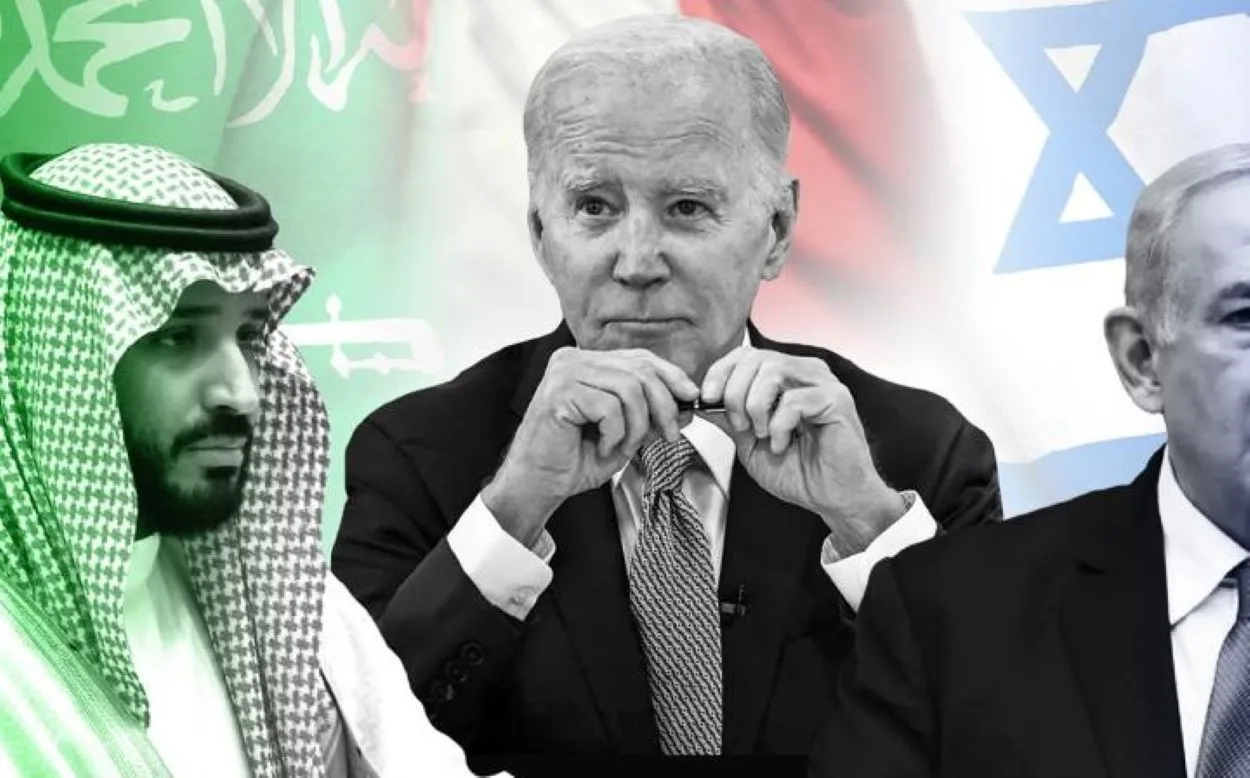Saudi Arabia is actively seeking a military agreement with the United States, hoping for a commitment to defend the kingdom. In return, the Saudis are prepared to formalize ties with Israel, irrespective of significant concessions to the Palestinian statehood cause, according to regional insiders familiar with the discussions.
Contrary to the ironclad NATO-style defence guarantees initially desired by the kingdom during Crown Prince Mohammed bin Salman’s dialogue with U.S. President Joe Biden in July 2022, the potential pact might resemble existing U.S. treaties with Asian countries. Alternatively, it could mirror the U.S. agreement with Bahrain, which doesn’t require congressional approval. To sweeten the deal, the U.S. could grant Saudi Arabia the designation of a Major Non-NATO Ally, Israel’s current title.
Nonetheless, Saudi Arabia insists on binding U.S. protection assurances, especially after incidents like the 2019 missile attack on its oil infrastructure, which had worldwide repercussions. Both Riyadh and Washington held Iran responsible, though Iran refuted involvement. Such an agreement would significantly reshape Middle East dynamics, tightening U.S.-Saudi ties and offsetting China’s growing regional influence.
Palestinian Statehood Takes a Backseat
While Saudi Arabia has expressed support for the Palestinian peace plan, its immediate interests lie in securing its benefits. Potential concessions to the Palestinians might include easing Israeli restrictions, but these gestures would not match their aspirations for full statehood. The primary focus of these talks revolves around fostering relationships between Saudi Arabia and Israel rather than addressing Palestinian concerns.
A U.S. official hinted that a potential pact would emphasize mutual defence understanding rather than a formal treaty alliance. Such an arrangement would resemble the U.S.’s relationship with Israel, marked by advanced weapon exchanges and joint military exercises.
Even as Saudi Arabia displays flexibility in its demands, including its stance on civilian nuclear technology, the challenge lies in securing legislative support from the U.S. Congress. Previous actions by Riyadh, such as the military intervention in Yemen and the killing of journalist Jamal Khashoggi, have faced widespread criticism, making congressional approval challenging.
Realigning Regional Dynamics
Israeli Prime Minister Benjamin Netanyahu has celebrated the prospect of peace with Saudi Arabia. Yet, for such a monumental accord to materialize, he must convince parties within his right-leaning coalition to concede to the Palestinians. Diplomatic sources suggest that the Crown Prince demands commitments from Israel, including territory transfers in the West Bank to the Palestinian Authority and a curb on Jewish settlement activities.
However, achieving consensus on these contentious issues remains a significant hurdle. Moreover, with Saudi Arabia’s recent diplomatic engagements with China, this potential pact is a testament to Riyadh’s desire to induce U.S. reengagement in the region.
*Additional News input was taken from Reuters.






